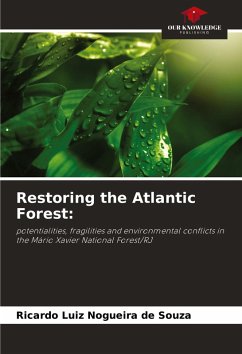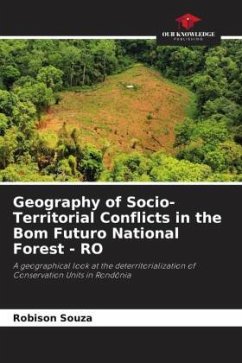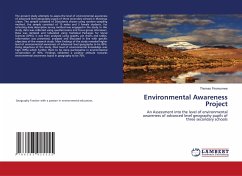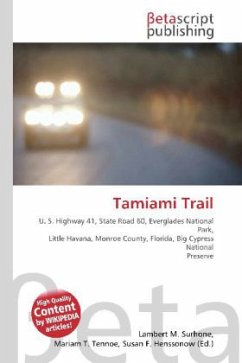
Interpretive trail in a conservation unit
Environmental education tool
Versandkostenfrei!
Versandfertig in 6-10 Tagen
33,99 €
inkl. MwSt.

PAYBACK Punkte
17 °P sammeln!
With a view to contributing to environmental conservation, environmental education activities are carried out in Conservation Units. Interpretive trails are important tools for environmental education, as their potential attractions bring people closer to nature, as well as making it possible to learn, raise awareness and reflect on the value of the environment through interpretive activities. Another benefit generated by this tool is to increase community participation in actions to conserve and enhance the protected area. With this in mind, the book presents references in the field of enviro...
With a view to contributing to environmental conservation, environmental education activities are carried out in Conservation Units. Interpretive trails are important tools for environmental education, as their potential attractions bring people closer to nature, as well as making it possible to learn, raise awareness and reflect on the value of the environment through interpretive activities. Another benefit generated by this tool is to increase community participation in actions to conserve and enhance the protected area. With this in mind, the book presents references in the field of environmental education that provide a theoretical basis for the proposal to build an Interpretive Trail in the Edmundo Navarro de Andrade State Forest, a sustainable use conservation unit located in the interior of São Paulo.














